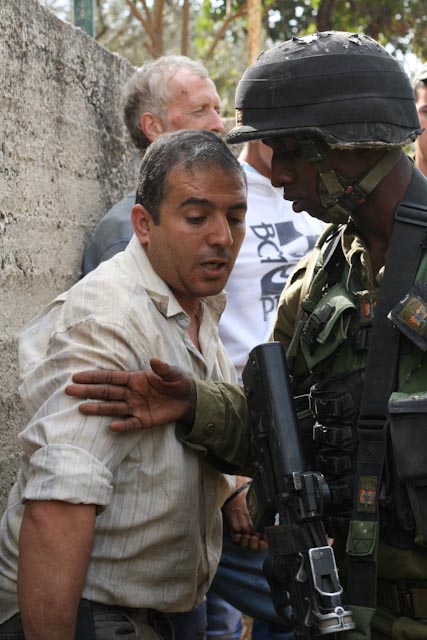Tag: Tel Rumeida
-
Israeli occupation forces issue five new military orders in Hebron
4th November 2012 | International Solidarity Movement, West Bank On Friday 2nd November the Israeli military issued five military orders on five families in and around Hebron. Families in Tel Rumeida are under threat of having their movement severely restricted. At the time of writing Sunday 4th November the objectives of the military orders is…
-
3 Arrested as Palestinians attacked by settlers and soldiers in Tel Rumeida
By Vicky Blackwell and Elyana Belle Photographs by Vicky Blackwell 22 October 2012 | International Solidarity Movement, West Bank VIDEO from Youth Against Settlements: UPDATE: 10.30pm – All 3 men have now been released without charge. Today, a group of settlers from the illegal settlement in Tel Rumeida arrived at Hashem Azzeh’s olive grove next to…
-
Hebron: Soldiers invade Kurtuba School, attempt arrest
By Ruby Astaire 26 September | International Solidarity Movement, West Bank Israeli soldiers invaded a Palestinian school in the city of Hebron with intentions to arrest two sixth grade students after false allegations of throwing stones at a nearby checkpoint. Israeli soldiers based in the Palestinian city of Hebron entered the Kurtuba school on Sunday…

